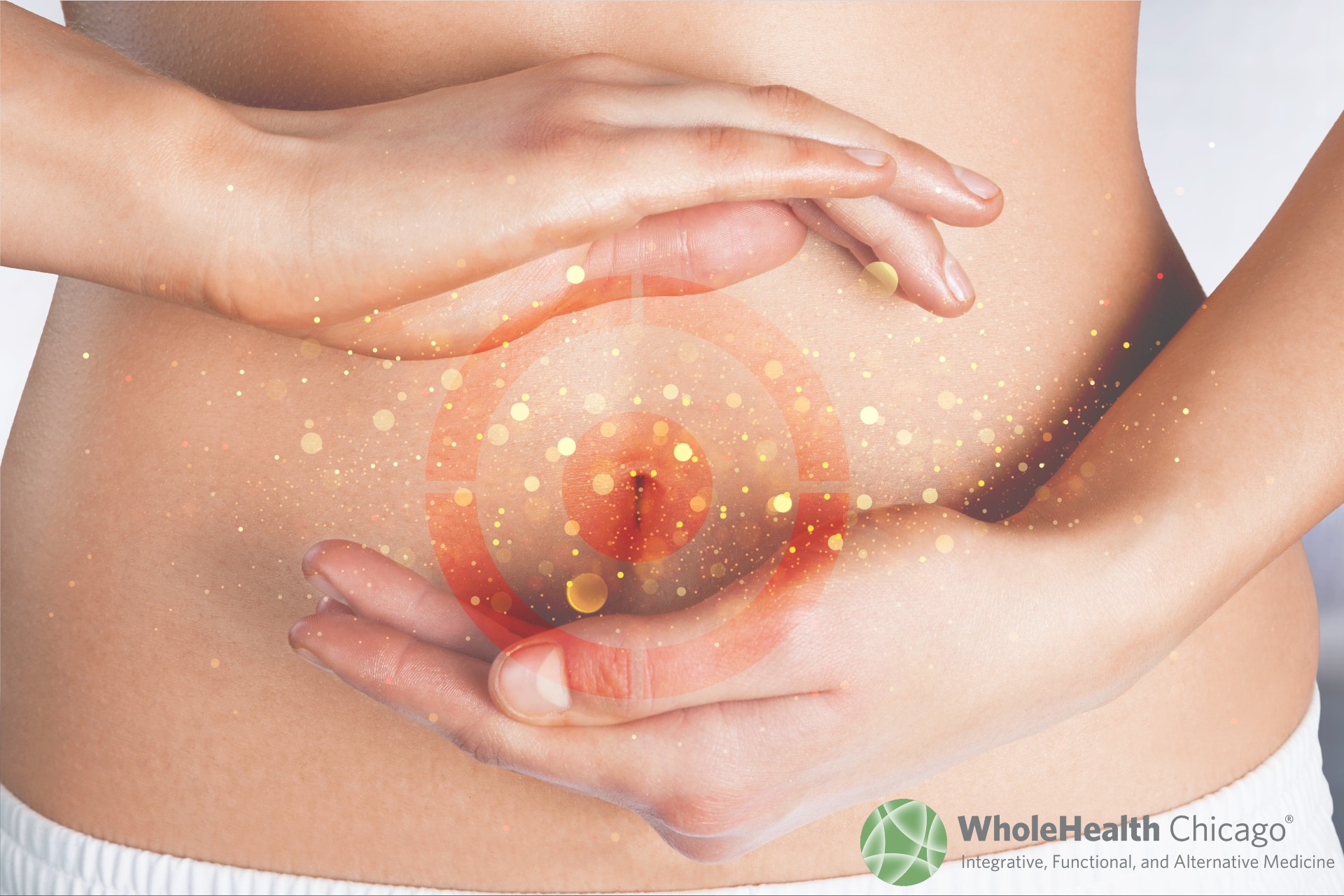I must admit being intrigued by a New York Times article earlier this month entitled, “How a Gastroenterologist Cares for Her Gut”, because, let’s face it, we do a lot of “gut rehab” work here at WholeHealth Chicago. I was curious about the conventional recommendations. In fact, all of us pretty much agree with the naturopathic mantra, “All illness begins in the gut.”
Since that gastroenterologist, Olufemi Kassim, M.D. (who is over at Loyola), clearly has the best of intentions for her intestines, making a consultation with one of our Functional Medicine physicians, Kristen Halland, D.C., for example, and reviewing a comprehensive tests like the GI Effects or the Gut Zoomer, might really be helpful for her.
Dr. Kassim starts by bemoaning that, “Even I don’t eat the recommended 25-30 grams of fiber every day”, so she pops several fiber 500 gm capsules (probably Metamucil), apparently between colonoscopies. One consultation with our nutrition provider, Tam Dickson Meyer, will teach the doctor how to easily reach the recommended fiber amount without pill popping. It can even be accomplished in the fiber-free mush of a hospital cafeteria.
Dr. K. also recommends staying well hydrated but doesn’t give any guidelines. I wrote about this recently and want to remind you that you simply take your body weight and convert to ounces of water, then cut that number in half. If you weigh 150 lbs., then you need 75 oz. of water a day.
Physical activity is important, she says, and I fully agree. This is easy being a hospital-based physician (you walk constantly!), and she adds yoga on her off days. It can be a real challenge for those of us stuck on an expressway for two hours a day or sit in front of a computer. My suggestion would be to literally walk at every opportunity and buy a treadmill or elliptical for your home, using it for more than hanging up your wardrobe.
Some of Dr. Kassim’s recommendations are well intended but don’t make a lot of sense considering our busy lifestyles. She warns against “eating large meals” and recommends “multiple small meals throughout the day”. I don’t know anyone who eats “large meals” anymore (especially for breakfast or lunch), and that “small meal” suggestion seems a path to weight gain.
She recommends that you not lie down after eating but try to stand up and perhaps walk around. Well, for those of you out there who lie down after a meal, like a Roman emperor, don’t do it. You’ll be cursed with constipation.
Lastly, Dr. K. adds that she is “somewhat” sensitive to high FODMAP foods and tries to avoid them when possible. I’m sure you’ve seen the acronym, FODMAP. This is an immense list of foods that contain certain types of sugars that can be very hard to digest because they increase the water and gas content in the small intestine. Many (70%) of people who have been diagnosed with symptoms of irritable bowel syndrome (especially abdominal cramping, bloating, gas, diarrhea and/or constipation) will feel better when they reduce their FODMAP foods.
I advise patients to “play detective” and figure out for themselves the real culprits. It’s usually just two or three foods (onions, garlic, wheat, dairy, for example). But don’t worry too much about this. Eating high FODMAP foods has never been a line item on anyone’s death certificate.
For the rest of us without irritable bowel symptoms, the high FODMAP foods are quite healthy, and all-in-all only a very small subset of the population needs to go on a low FODMAP diet.
I was a bit surprised that Dr. K. made no mention of prebiotics or probiotics or the importance of a healthy microbiome. It is certainly acknowledged by researchers worldwide that an unhealthy microbiome is associated with a huge variety of chronic physical and mental illnesses from heart disease to cancer, from autoimmune disease to chronic kidney failure. Her fiber supplements and high fiber diet will help her microbiome, but she made no mention of probiotic supplements or fermented foods. Tam Dickson Meyer to the rescue!
I also think that anyone who bothers to reduce her FODMAP because of IBS symptoms (there’d be no other reason to do this) really should get a more thorough evaluation of her digestion. Ironically, gastroenterologists are utterly clueless about tests like the GI Effects and the Gut Zoomer, and perhaps what symptoms she attributes to FODMAP foods can be helped by digestive enzymes, or clearing her intestinal parasites, or improving her microbiome.
FYI: If you follow the links and look at the “sample report”, that’s great, but do make an appointment with one of the WHC practitioners to interpret the results for you. This goes for Dr. K. as well.
Just trying to be helpful.
Be well,
David Edelberg, MD

A forkful of good sauerkraut alleviates many digestive ills. Worked for me anyway.
Janis Wrich
Hi Janis,
It is amazing how many foods can be healing to the gut!
WholeHealth Chicago